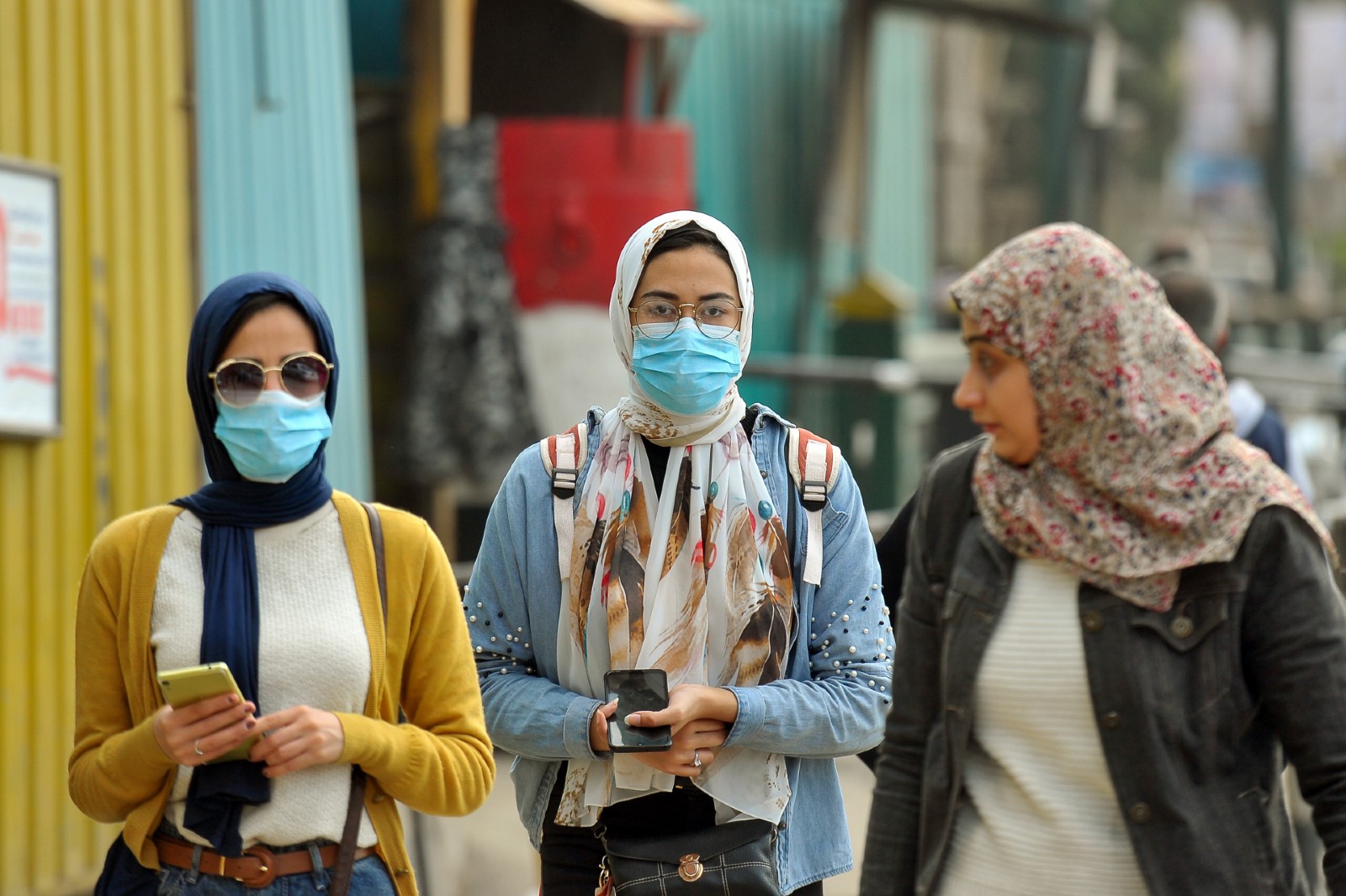Capmas releases the most extensive long-term Egypt covid study to date

Everything you wanted to know about Egypt’s first and second waves, courtesy of Capmas: State statistics agency Capmas has put out one of the most extensive studies on covid infections, deaths, and impact by demographic we’ve seen to date. While the study focuses mostly on comparing the first and second waves of covid-19, it offers new data on geographic spread, impact by gender and age, as well as the rates of infected foreigners. The study looks at covid infections and death data from 14 October to 29 December.
As expected, the second wave spread faster and was more lethal than the first: During the first wave, it took us 85 days to pass 1k daily infections. The second wave only needed 31 days to break the same barrier. An average of 587 daily infections were accounted for during the second wave, compared to 429 during the first wave. On the death rate front, it took 90 days to break the barrier of 50 deaths during the first wave, compared to only 37 days during the second wave. As of this morning, Egypt has now disclosed a total of 180,051 confirmed cases of covid-19. The ministry also reported 52 new deaths, bringing the country’s total death toll to 10,495.
Men are more prone to infection and covid-related death due to a higher presence of ACE2 enzymes in men. The enzyme acts as a receptor, making it an entry-point for covid to inhabit human cells. Women were less likely to die as a result of covid, and slightly less probable to get infected. During the studied period, 55.9% of covid-related death cases were men, compared to 44.9% of women. The discrepancy lessens when looking at infections though—between 52% and 53% of infected Egyptians were male.
Worldwide, covid has been more lethal for the elderly, and Egypt is no exception. 91.5% of covid-related deaths were people aged 46 and above. Death rate amongst those aged 46-65 also slightly increased during the second wave. Of those who died due to covid and were aged 60-69 years, over 65% struggled with high blood pressure, almost 29% had diabetes and 6% suffered from lung diseases.
Matruh governorate witnessed the highest infection-rate per mn people at 1,179, followed by Port Said and Cairo. In terms of deaths, Port Said recorded the highest rate with 125 deaths per mn, preceding Alexandria and Matruh. Assiut registered the lowest rate among all governorates with 70 infections and 1.9 deaths per mn people. Since the pandemic entered Egypt and until 29 December 2020, Egypt recorded 1,343 infections per mn people.
A total of 353 foreigners were infected in Egypt during the duration of the study. Aswan had the highest number of infected foreigners with 158, Cairo (63 infected) and Alexandria (39 infected) followed at second and third place. Lowest infection count among foreigners could be found in Beni Suef, Minya and Luxor, with 1 infection each.
Overall, Egypt ranks 64th worldwide in terms of infections, and 31st in terms of deaths. During the first wave, Egypt ranked 56th in terms of total infections and 34th in terms of deaths, with the 3rd highest infection rate in Africa, behind South Africa and Morocco, and 12th in MENA. We rank 2nd in terms of deaths in both regions. We did better during the second wave, though, dropping to 3rd place in Africa-wide infections and 10th in MENA.
You can find the full study on Capmas’ website here.
IN GLOBAL COVID NEWS-
S African strain vaccine gets NIH approval for clinical trials: The US National Institutes of Health (NIH) will “soon” begin clinical trials on Moderna’s variant-specific covid-19 vaccine candidate, the FDA said in a press release today. Moderna is the first vaccine maker to produce a shot targeting the virus variant discovered in South Africa, and shipped doses to the NIH yesterday with the trial expected to kick off once the FDA gives the greenlight. Moderna has so far found that its current two-dose regimen generates a weaker immune response against the mutant strain, though antibodies in patients remain above levels that are expected to be protective against the virus. This comes amidst growing concern about new, emerging variants of the virus, which could comprise the efficacy of administered vaccines both on the market and under development, writes CNBC.